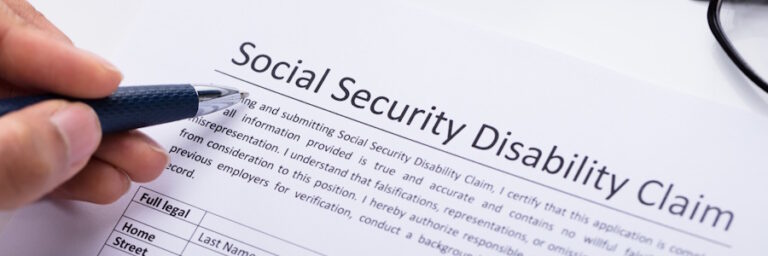
Navigating the labyrinth of the Social Security disability claims process can be daunting, especially when faced with an unfavorable decision from an Administrative Law Judge (ALJ). However, the pathway to justice does not end here. Claimants are empowered with the right to appeal such decisions, a critical step that can alter the course of their claims. This appeal, directed towards the Appeals Council, is a beacon of hope for many seeking a reversal of fortune. And yet, the journey may extend further, as denials by the Appeals Council pave the way for litigation in Federal Court. Here, the possibility of a case being “remanded” or sent back to the ALJ for reevaluation introduces a new chapter in the quest for approval.
The statistical landscape of these appeals, as outlined by the Social Security Administration (SSA) for the fiscal year 2023, paints a revealing picture. With a mere 13% of Appeals Council cases remanded back for further hearings and a significantly higher 61% remand rate following Federal Court interventions, the dynamics of these proceedings become clear. Interestingly, despite the absence of statistics on the approval rates of remanded cases, an overall approval rate of 45% in hearings before ALJs suggests a challenging yet hopeful scenario for claimants.
Beyond the surface-level statistics, this article delves into the nuanced factors that influence the approval rates of Social Security disability claims. From the pivotal role of medical evidence and legal representation to the impact of vocational factors and jurisdictional nuances, each element plays a crucial role in shaping the outcome. Understanding these variables can significantly enhance a claimant’s chances of approval, especially in the context of remanded cases.
As we explore these themes, the article sheds light on the intricacies of the Social Security disability claims process, offering insights and guidance to navigate the challenges that lie ahead. Whether it’s the importance of continued medical documentation, the advantages of legal advocacy, or the strategic considerations of vocational assessments, the path to approval is multifaceted. This comprehensive exploration aims to equip claimants with the knowledge and strategies needed to succeed in their appeals and beyond, illuminating the journey towards securing the benefits they rightfully deserve.
Understanding Remanded Cases
After an administrative law judge (ALJ) issues an unfavorable decision, claimants have the right to file an appeal to challenge the judge’s decision. This appeal will go to the appeals council, and if the appeals council denies the claim, a lawsuit can be filed in federal court. If the appeals council or the federal court agree that the judge made a mistake in denying the claim, they may “remand” the case back to the ALJ. This means that the case is sent back to the judge for further review or evaluation. Claims are typically sent back or remanded due to a legal error that the judge made at the hearing or insufficient evidence in the initial decision-making process.
Approval Rates: The Big Picture
According to the Social Security Administration (SSA), in 2023, 13% of appeals to the appeals council were remanded back to the administrative law judge for another hearing. After suits were filed in federal court, 61% of cases were remanded back to the SSA for further proceedings. The Social Security Administration does not keep statistics on approval rates of remanded cases. But in 2023, 45% of all hearings before administrative law judges were approved

Possible Factors That May Affect Approval
Understanding the factors that may affect the outcome of your Social Security disability claim will help increase chances of approval of your remanded case. Among these factors are:
Medical evidence
The Social Security Administration will review relevant medical records to determine if you are disabled. Cases can be won and lost based on the strength of the medical records. The presence of strong medical evidence can increase the likelihood of approval. Detailed medical records and reports support the disability claim. Clear documentation of the severity and impact of the disability improves the chances of approval.
Your remanded case will be stronger if you continue to go to the doctor and undergo testing while your appeal is pending. If your case is remanded, you will have a stronger case if there are updated medical records that demonstrate your disability.
Legal representation
Legal representation can be very helpful when pursuing an appeal. Experienced legal representatives can help you understand the legal errors that may have occurred during your hearing and argue to the appeals council and the federal court why those legal errors were harmful to your case.
At the remand hearing, having legal representation can positively influence approval rates. A government study showed that representative claimants are allowed benefits at a rate nearly three times higher than those without representatives. Experienced lawyers can ensure all necessary paperwork is completed accurately and your SSA file is complete. Legal advocates can effectively present the case to the administrative law judge.
Vocational factors
In many appeals, cases are remanded because there was not a proper assessment of certain vocational factors. Vocational factors can be crucial to a disability appeal and a favorable outcome at a remanded hearing. To be successful in a Social Security disability case, you need to show that you aren’t able to perform your past work, your skills from your past work don’t transfer to other full-time work, and you are not able to perform any other type of work.
Jurisdiction
According to SSA policy, when your case is remanded, it is sent back to the same administrative law judge who originally held a hearing in your case. This is done to fairly evaluate the claim and fix any errors that may have occurred in the first hearing. If you attend the hearing and get another unfavorable decision and you appeal the decision again, the appeals council will remand the hearing to a different administrative law judge.
Your case may also be assigned to a different judge. This may occur if you moved to a different jurisdiction while your appeal is pending. You can check out the reasons a case may be transferred here.
Beyond Approval Rates: What Else Matters?
Other important factors that affect the chances of approval of your remanded case include the following:
Relevant time period and alleged onset date
In a Social Security disability case, the “relevant” period at issue is the time you stopped work due to your disability through the date of adjudication. The date you were unable to work due to your disability is called the “alleged onset date.” At a disability hearing, the judge will consider if you are disabled at any point until the date of the hearing.
If your case is appealed and remanded, the relevant time period is the same. The judge will continue to evaluate if you were disabled at any period from the time you stopped working through the date of the new hearing. While your case and appeal were pending, there may have been certain changes that occurred. You may have changed age categories, been diagnosed with new disabilities, or even returned to work.
If you were diagnosed with a new disability, the judge needs to consider this impairment at the new hearing. If your condition improves and you return to work, you can request a closed period of disability at the remanded hearing. A closed period of disability is awarded when you are no longer disabled and not eligible for ongoing benefits but were disabled for a period of time and received benefits for a period in the past. A closed period awards a one-time lump-sum payment but no ongoing monthly payment.
If your age category changes while your appeal is pending, your remanded case may be easier to win. The SSA has age categories: a younger person is under age 50, a person closely approaching advanced age is age 50–54, a person of advanced age is age 55- 59 and a person closely approaching retirement age is age 60–65. As you age into older age categories, the SSA’s Grids Rule dictates that it is harder to transfer your skills to other types of full-time work. All of these changes will be relevant considerations at your remanded hearing.
Medical evidence quality
Having strong and well-documented medical evidence can significantly increase the chances of approval. Objective medical tests are critical to a case. If your claim is related to your mental health conditions, mental status exams and ongoing treatment notes from your psychiatrist or psychologist are helpful. If your claim is related to back or neck pain, MRIs, X-rays, and other imaging are important to show the underlying cause of your limitations.
Consistency in medical records
Ensuring consistency in medical records and reports can reinforce the credibility of the disability claim. A lack of medical care can lead to a lack of medical records to document your disability. Therefore, it is important to continue to get consistent medical care while your disability case is pending.
Adherence to treatment plans
Following prescribed treatment plans and demonstrating efforts to improve health can positively influence the ALJ’s decision-making process. The Social Security Administration may deny your claim if you fail to follow prescribed treatment without good cause. If you continue to follow the treatment advice of your doctor and you remain disabled, the chances of approval will increase.
Legal representation
Engaging a qualified attorney or advocate can provide valuable guidance and representation throughout the disability claims process. A legal representative will prepare you for the hearing and make sure your file is updated. Before the hearing, the appeals council will issue a Notice of Remand to the judge, explaining the errors that occurred at the first hearing. The representative will review the notice to understand and prepare for any potential issues of focus at the remanded hearing.
If the appeals council notes that the record is incomplete, an attorney will work to gather and submit all relevant information. If the notice says that certain impairments weren’t properly discussed, an attorney will prepare and submit additional evidence of that impairment. If the notice states that the symptom testimony was improperly evaluated, an attorney will help prepare you for the hearing to further testify and explain your disability and its limitations. The representative will also prepare questions to cross-examine any vocational or medical experts on your behalf.
FAQs
Cases win on appeal and are remanded due to harmful legal errors that occurred when your claim was denied. From 2010 to 2020, the Social Security Administration kept statistics on the reasons cited by the court on remands to the Social Security Administration. These reasons include improper consideration of the statements from your treating doctor, an examining doctor, and the statements you made at the hearing. Cases may also be remanded if there was an incomplete or inaccurate record at the time of the hearing. You can see a list of the reasons here.
When an appeal is successful, the appeals council will send the case back to the administrative law judge for another hearing. When the case is sent back, a Notice of Remand is sent out to the claimant and the judge. In the Notice of Remand, the appeals council will explain the errors that took place and the corrections that need to be made during the remanded hearing.
To improve your chances of winning on remand, review the Notice of Remand. In the notice, the appeals council will explain what errors need to be corrected. If there was an inaccurate or incomplete record, ensure that your file is up to date and complete. If the judge didn’t evaluate your doctor’s opinion correctly, it would be helpful to obtain updated statements from your medical team and doctors. If the judge didn’t properly evaluate your vocational factors, make sure to update the file or clarify through testimony your past work and the reasons you can no longer perform your past work or utilize your skills to perform any other type of work.
If your remanded case is denied again, you can file another appeal. The appeal is filed with the appeals council again. An appeal should be filed if the judge made a specific legal error that was harmful to your case.
Social Security representatives work on contingency. If your appeal or your remanded hearing is unsuccessful, no fee is owed. A representative will only be paid if your remanded hearing is successful. Attorney’s fees are 25% of your first retroactive payment; however, fees are capped at $7,200 regardless of how much money you are owed by the Social Security Administration. At LaPorte Law Firm, if we take your case to the appeals council level and are ultimately successful, our fee remains 25% of your retroactive payment with a cap of $7,200. After November 30, 2024, the maximum attorney’s fees are capped at $9,200.















